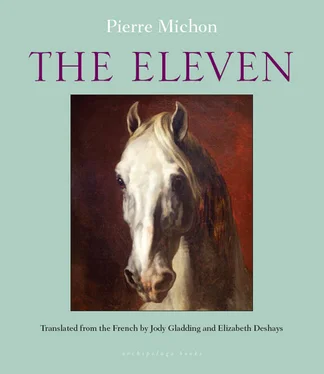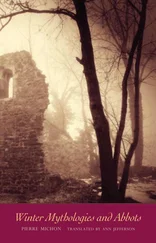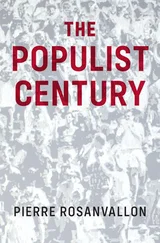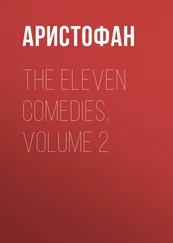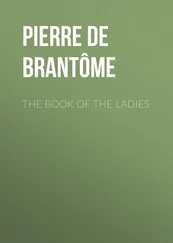I will add this: in either case, Robespierre’s annihilation or apotheosis, it was necessary that the painting be right, that it work; that Robespierre and the others be seen there either as magnanimous Representatives or as bloodthirsty tigers , according to which reading events would require. And that Corentin painted it and succeeded in this way, in both ways, that is undoubtedly one of the reasons why The Eleven is in the last chamber of the Louvre, the holy of holies, under protective glass five inches thick.
Proli says none of that. He has put his greatcoat back on and has mounted one of the phantom horses, he is galloping toward Passy where he is hiding out, from the warrant for his arrest, from the guillotine. He is already passing through the Saint-Martin gates at a gallop. And neither does Bourdon stay to talk, he has left as well, on foot into the night of wolves to yelp with some other pack or to sleep with his own. All that — the trap in the form of a painting, the political joker — we can suppose it is Collot who explains it to Corentin, accompanying him back to the porch of Saint-Nicolas. Because they remain there a moment, the two of them among the opaque masses of the lowered bells; and we can see them distinctly, the big lantern has followed them that far, it is on the ground and projects the large shadows of the bells upon the three walls of the porch and upon the night, which is the fourth wall: black greatcoat and greatcoat the color of the smoke of hell , two-cornered hat on Collot’s head, three-cornered hat on Corentin’s, even the little theatrical plumes of breath from their mouths, under the porch of Saint-Nicolas, which is like the stage of a theater with its double doors open at the deadest hour of the night of wolves, erstwhile the Night of the Three Kings. They are very cold. Collot does not forget that he is in Shakespeare, a country where it is cold as well, he is leaning theatrically with his back against the mantle of the largest bell. The Elizabethan ruff blossoms at his neck. He is more garrulous than earlier. He has found the appropriate grand gestures again, the appropriate grand sentences. In hushed tones he has explained the trap, the tactic by which the painting is a war machine, and now he raises his voice, he exaggerates a bit: he speaks as the wind blows, in gusts, as if on a rostrum or a stage. He says laughing: “So you are going to represent us. Take care, citizen painter , representing the Representatives is not something to take lightly.” He tells him that he wishes him much pleasure in painting these portraits, because he, Collot, no longer dares to look at himself in a mirror, and in a voice too low to be heard Corentin says that neither does he. Collot remains silent for a moment, then he goes on in an affectionate tone: “We have pulled through, the two of us, since the beginning, and here we are already in ’94.” He speaks with a hesitant tenderness, as one would recall a night of carousing or a murder committed together: Do you remember Macbeth in Orléans in ’84? Yes, Corentin looks at him affectionately too, remembering: Collot’s youthfulness, his self-assurance, his irrepressible laughter in the darkest scenes, his rough and tender soul; and his madness, his constant drunkenness, on words, on wine. And suddenly the mixture of all these things, the bells, Orléans, Macbeth , come together and awaken a very old memory.
He remembers a beautiful morning when, as the two of them were strolling along the great levee toward Combleux, searching for ideas for the play, Collot was moved to pity for a woman collapsed under the Saint-Jean-le-Blanc bridge, famished and hysterical; that he had squatted down beside her and spoken to her for a long time; that during this time he, Corentin, had listened to the chiming bells answering one another along the length of the Loire from Saint-Jean to Combleux, from Combleux to Chécy — perhaps it was noon, or Angelus, or a holiday. He had been drawn from that joyous pealing by shouts: the girl was crying out, she had risen and thrown herself on Collot, baring her claws. There had been a brief semblance of a struggle, Collot was healthy and well fed, the girl was weak; very quickly he had her firmly by the wrists, in his power. He was smiling, in his smile there was always a shadow of compassionate zeal, but otherwise it was the mask of lust and its accompanying cruelty. Eventually he had calmed the poor creature down and taken her away with him. Corentin can still see the girl clearly — she had a red birthmark on her face that she tried to hide with a kind of mechanical coquetry, despite being famished. Collot had taken her in, fed and no doubt bedded her, had comforted her and set her back on her feet; he had found her lively and not without intelligence, and had eventually given her a small, silent part in the play, as one of the monstrous creatures leaping about at the witches’ feet on the moor in Macbeth ; and she was ashamed of it, rightly or wrongly convinced that it was her birthmark and not her liveliness or her poverty that had brought her salvation and employment. Looking at Collot now in the night of wolves, Corentin is thinking that it is a strange and marvelous thing, that all that compassionate zeal for the unfortunate should have come to this, to the witches of Macbeth , to the Brotteaux plain, to the pikes and the carts, to the moor from Macbeth reappearing under the great cutting machine on the Place de la Révolution. (He is also thinking that he, Corentin, is completely familiar with such marvels, feats of magic, that he has performed them many times: that is how his mother and grandmother, lovesick creatures, became the terrible Sibylles by his hand, five times as there are five sibyls.) All the while his thoughts are thus wandering, Collot is speaking, with his dark cheer, the little plume of his breath. He is saying: “Yes, we have pulled through for the moment. But now it is in God’s hands. And we are going to need a holy hell of a hand to get us out of this. A hand of iron. Yours, perhaps?”
Collot laughs, as one laughs when shivering with cold. They can both see that crucial hand — for they really cannot believe, Sir, neither Corentin nor Collot, in their possible innocence, in a good future earned by their good innocence, in their good Right, in men free and equal by right, frolicking happily in the great fraternal garden. They were awaiting the hand. They believed more in luck and, yes, you could say, in Salvation, Sir. In the bells.
Corentin does not laugh. Perhaps he is not listening to Collot, but he is looking at him. With a kind of joy he thinks that the compassionate zeal for the unfortunate and the Brotteaux plain, the welcoming table and the Macbeth moor, the helping hand and the murder, Nivôse and April, is all in the same man. It is in Collot, one of those eleven men whom he will paint. That he is destined to paint. He is also thinking that every man is capable of anything. That eleven men are capable of eleven times anything. That that can be painted. No, he is certainly not listening to Collot. His joy is growing. His joy rings out. He is listening to the memory of the bells. He hears them as they begin, as they grow louder, as they ring out fully, as they subside. As they cease. In the dark Collot does not see his tears of joy, or he attributes them to the cold. It is three o’clock in the night. Come, it is time to part, Collot has already gone to saddle the other horse. He leads it under the porch, holding the bridle: the horse, the two men, among the stilled bells. They have extinguished the lantern. They embrace. They will not see each other again.
All that you have read as well, Sir, in the framed notes in the antechamber. You have even paused before the reproduction of the oil sketch by Géricault, which is not here at the Louvre, which is sleeping among the Girodets in the Montargis museum: Corentin in Ventôse receives the order to paint the Eleven . The title assigned after the fact is approximate, the painting is hardly roughed out, there are large areas of white, because Géricault painted it with death looking over his shoulder. But it conforms exactly to what I have said.
Читать дальше
